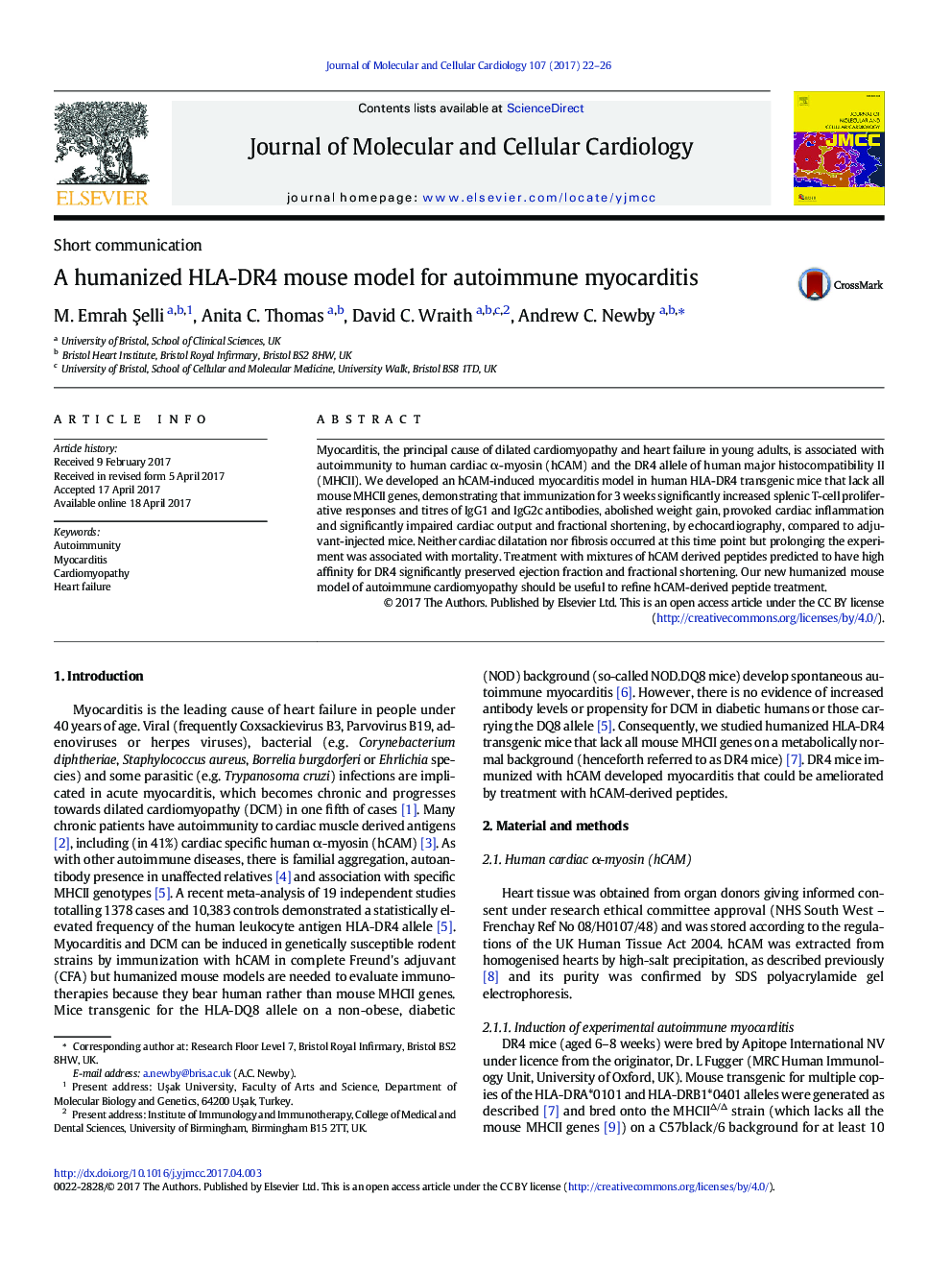| Article ID | Journal | Published Year | Pages | File Type |
|---|---|---|---|---|
| 5533566 | Journal of Molecular and Cellular Cardiology | 2017 | 5 Pages |
â¢We developed a novel fully-humanized mouse model of autoimmune myocarditis.â¢Human leukocyte antigen DR4 transgenic mice were immunized with human cardiac myosin.â¢After 3 weeks, mice developed myocarditis and impaired myocardial function.â¢A pilot study established the feasibility of peptide immunotherapy in this model.
Myocarditis, the principal cause of dilated cardiomyopathy and heart failure in young adults, is associated with autoimmunity to human cardiac α-myosin (hCAM) and the DR4 allele of human major histocompatibility II (MHCII). We developed an hCAM-induced myocarditis model in human HLA-DR4 transgenic mice that lack all mouse MHCII genes, demonstrating that immunization for 3 weeks significantly increased splenic T-cell proliferative responses and titres of IgG1 and IgG2c antibodies, abolished weight gain, provoked cardiac inflammation and significantly impaired cardiac output and fractional shortening, by echocardiography, compared to adjuvant-injected mice. Neither cardiac dilatation nor fibrosis occurred at this time point but prolonging the experiment was associated with mortality. Treatment with mixtures of hCAM derived peptides predicted to have high affinity for DR4 significantly preserved ejection fraction and fractional shortening. Our new humanized mouse model of autoimmune cardiomyopathy should be useful to refine hCAM-derived peptide treatment.
